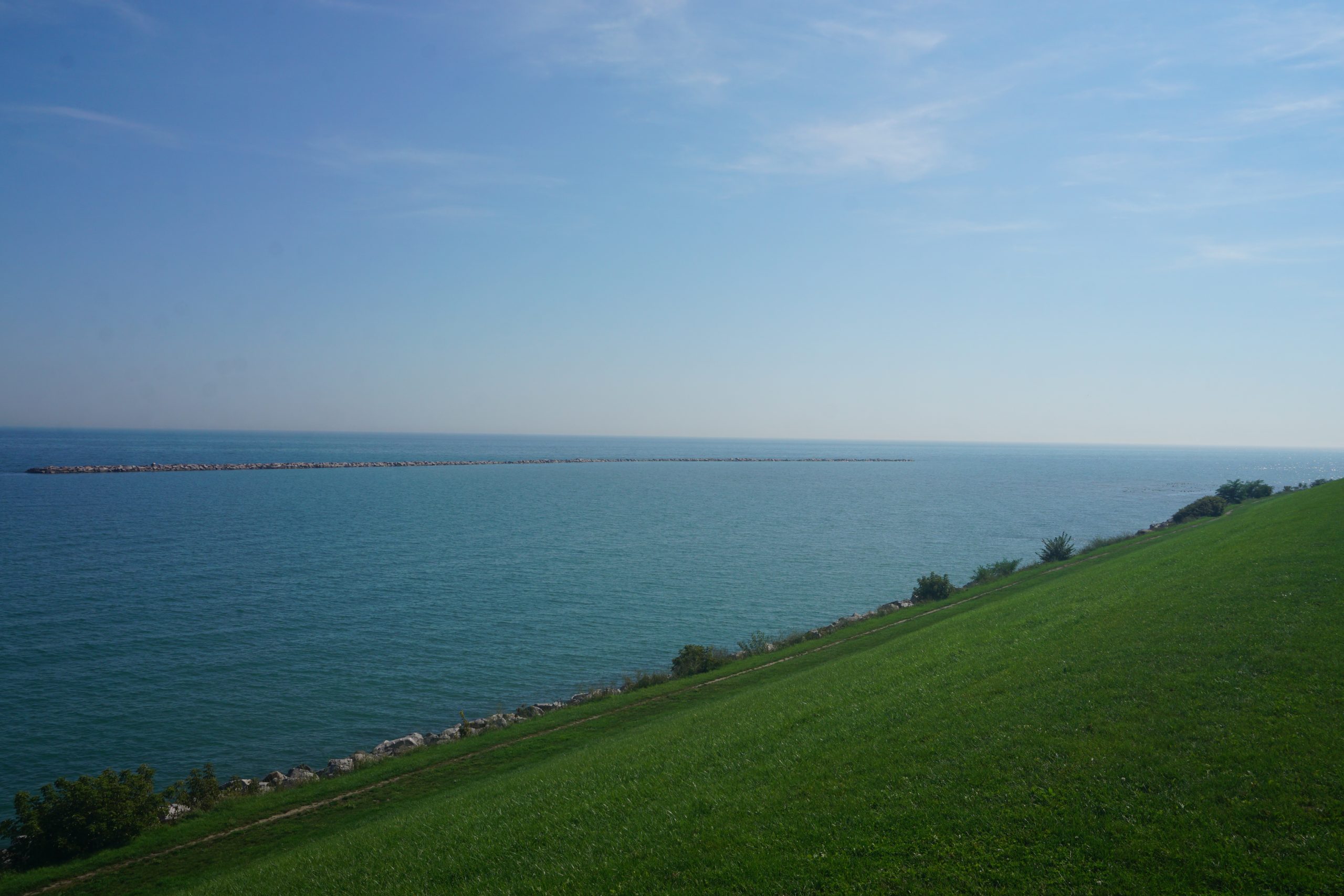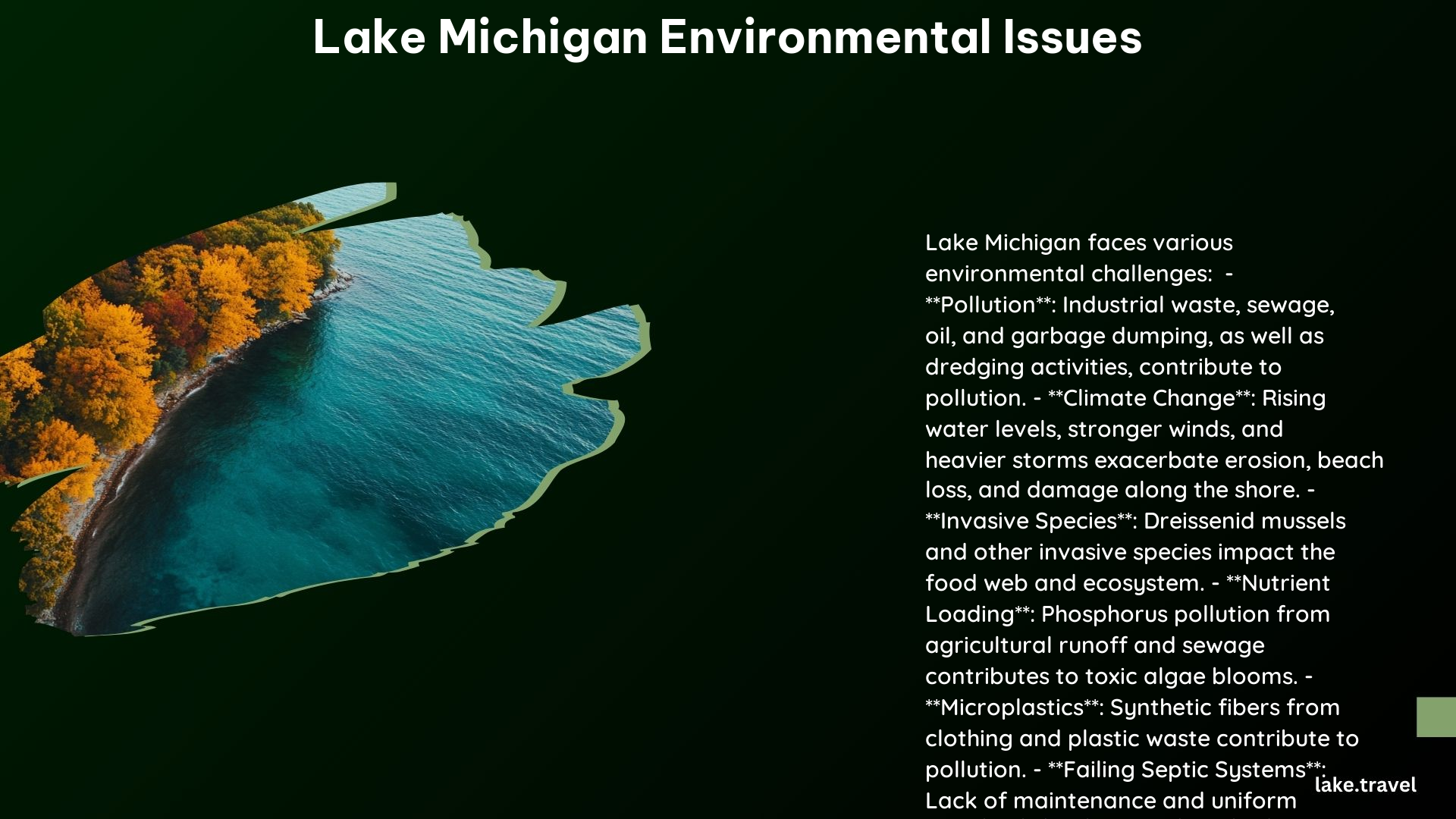Lake Michigan, one of the Great Lakes, faces a multitude of environmental challenges that threaten its delicate ecosystem and the communities that rely on its resources. From nutrient loading and invasive species to pollution and climate change, these issues have far-reaching impacts on the aquatic food web and the overall health of the lake.
Primary Causes of Pollution in Lake Michigan

-
Nutrient Loading: Excess nutrients from agricultural runoff, sewage, and industrial activities contribute to harmful algae blooms, depleting oxygen levels and affecting aquatic life. These nutrient-rich discharges can lead to eutrophication, which disrupts the natural balance of the lake’s ecosystem.
-
Invasive Species: Non-native species like the zebra mussel and Asian carp have invaded Lake Michigan, outcompeting native species for resources and altering the food chain. These invasive species can have devastating effects on the lake’s biodiversity and the overall health of the aquatic environment.
-
Pollution: Industrial waste, sewage, oil spills, and microplastics contaminate the waters of Lake Michigan, posing a threat to aquatic life and human health. These pollutants can accumulate in the food chain, ultimately impacting the communities that rely on the lake’s resources.
-
Climate Change: Rising temperatures and extreme weather events exacerbate erosion, beach loss, and damage to shoreline communities. These changes also alter the aquatic ecosystem, affecting the delicate balance of the lake’s food web.
Impacts on the Aquatic Food Web

-
Fluctuating Lake Levels: Changes in water levels due to climate change and other factors can affect the habitats and populations of aquatic species, altering the food web dynamics and disrupting the natural balance of the ecosystem.
-
Invasive Species: The introduction of invasive species like the zebra mussel has been linked to the loss of the spring phytoplankton bloom and the deep chlorophyll layer, which are critical components of the offshore pelagic food web. This disruption can have cascading effects throughout the entire aquatic food chain.
Mitigation Efforts
-
Regulatory Actions: Strengthening policies and enforcement to reduce pollution from industrial activities, agricultural runoff, and sewage is crucial in addressing the environmental issues facing Lake Michigan.
-
Infrastructure Upgrades: Improving wastewater treatment facilities and separating stormwater and sanitary sewer systems can help prevent raw sewage from entering the lake, reducing the impact of nutrient loading and other pollutants.
-
Community Engagement: Educating the public about the impacts of microplastics, excess salt, and invasive species, and promoting sustainable practices can empower individuals and communities to play a role in protecting Lake Michigan.
-
Climate Change Adaptation: Investing in resilient infrastructure, adapting shoreline management, and prioritizing the cleanup of contaminated sites can help mitigate the effects of climate change on Lake Michigan and its surrounding communities.
By addressing these primary causes of pollution and implementing effective mitigation strategies, we can work towards restoring the health and resilience of Lake Michigan’s ecosystem, ensuring its continued viability for generations to come.
References
- Environmental Law & Policy Center. (n.d.). Protecting the Great Lakes. Retrieved from https://elpc.org/projects/protecting-the-great-lakes/
- NOAA Great Lakes Environmental Research Laboratory. (n.d.). Ecosystem Dynamics – Long Term Observations. Retrieved from https://www.glerl.noaa.gov/res/projects/ecoDyn/
- MI Water Stewardship. (n.d.). Michigan Water Quality Issues. Retrieved from https://miwaterstewardship.org/michigan-water-issues/
- Give Earth a Chance. (n.d.). Great Lakes Pollution. Retrieved from https://michiganintheworld.history.lsa.umich.edu/environmentalism/exhibits/show/main_exhibit/pollution_politics/great-lakes-pollution
- Environmental Law & Policy Center. (2022, June 15). Rising Waters: Climate Change Impacts and Toxic Risks to Lake Michigan’s Shoreline Communities. Retrieved from https://elpc.org/resources/rising-waters-climate-change-impacts-and-toxic-risks-to-lake-michigans-shoreline-communities/.
